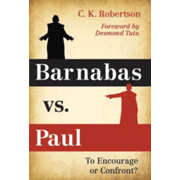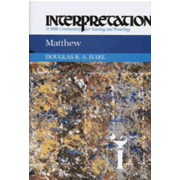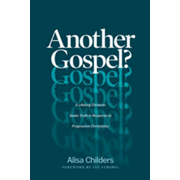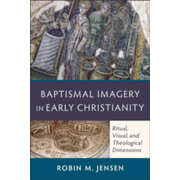FOR THE Twenty-First Sunday after Pentecost we wrestle
with matters financial as they were told in the Gospel According to Saint
Matthew. Herein we read that Jesus was confronted by temple personalities who
believed they had a lock on the tenuous treasury of Israel
Then the Pharisees went and took counsel how to entangle him in his talk. And they sent their disciples to him, along with the Herodians, saying, “Teacher, we know that you are true, and teach the way of God truthfully, and care for no man; for you do not regard the position of men. Tell us, then, what you think. Is it lawful to pay taxes to Caesar, or not?”
But Jesus, aware of their malice, said, “Why put me to the test, you hypocrites? Show me the money for the tax.”
And they brought him a coin. And Jesus said to them, “Whose likeness and inscription is this?” They said, “Caesar’s.” Then he said to them, “Render therefore to Caesar the things that are Caesar’s, and to God the things that are God’s.”
When they heard it, they marveled; and they left him and went away.
(Matthew 22:15-22)
Whose
Collection Plate…?
Likely within the same decade, both our Matthean gospel
writer and the author(s) of the Gospel According to Saint Luke recorded a scene previously described
in similar fashion by the community of Mark (see Mark 12:13-17, Luke 20:20-26).
In all three gospels we read of financial wrangling in the Jerusalem temple. The
challenging conversation was laid before Jesus, possibly
challenging him toward entrapment as he sat amongst powers of the political and
religious world. Present were the Pharisees who possessed some vacillation
about the tax structure in Israel, concerning the practice of paying a
per-capita tax to Caesar. With them, making strange allies to some of the Pharisees,
were the Herodians. These last favored Herod, the King. They held firmly to his
reconciliatory attitudes of paying taxes toward the Romans and supporting the
rule of Caesar. Lastly, but not mentioned here, were the Zealots, If they had a
say, the Zealots wouldn’t give Caesar the time of day, nor a coin from the Jewish
people.
Here we see
that the conversation began with a group giving high praise to Jesus and his
powers of perception. Then, likely having thought they had gained favor,
they pushed a loaded question. Indeed, it was a question that, when answered,
would give all within hearing a foretelling of Jesus political bent. His politics would then
be something to be held up, examined, supported or challenged. If our Lord said
that one should pay taxes to Caesar he would offend those such as some
Pharisees and the Zealots, both of whom harbored hopes for Israel’s
independence. If Jesus said not to pay he would glean accusations. He would risk
offending Herod, the Herodians and Caesar himself. You see, the Herodians could
have objected, for the coin itself not only carried the imprint of Caesar, but Jesus
saw that the Roman ruler was falsely given a divine title. The title was pressed on
that very coin.
After
examining the coin, our Lord responded to the question. He said to give that which belongs to
Caesar to Caesar, and that which belongs to God to God. By answering in that
way, Jesus countered the entrapment set before him.
However, as
we examine the response closely, we see that the issue has great importance for the Church. The
words does far more than elude conspiring worldly powers. For us, it defines
indeed worldly values as to what treasure belongs to whom. If we hold the Caesar and the
Father as co-equal, one might interpret that the earthly, silver coins rightly
belonged to Caesar... or whatever other earthly power caused their minting and
printing. This thought pattern concludes then, that God is interested in a
strictly spiritual realm. Earthly coinage is then adiaphora.., beside the point.
But consider
this. Given that our Lord sat in the temple as fully a man and fully divine, I
would question the claim of Caesar or any other finite power… upon either
worldly or heavenly riches. You see, I believe that all things fall under the
province of God, including any denarius, dollar or other trade commodities on any stock market. If we render unto God that which is of God’s making…
we see that all things ultimately are made by God and belong to God. Therefore, though Caesar can pound silver or
sand into any form that he wishes… all raw materials whether common or precious are created by God.
These earthly things are simply placed into our care. Biblically, from the very beginning
we read…
“A river flowed out of Eden to water the garden, and
there it divided and became four rivers. The name of the first is Pishon; it is
the one which flows around the whole land of Havilah, where there is gold; and
the gold of that land is good; bdellium and onyx stone are there. The name of the second river is Gihon; it is
the one which flows around the whole land of Cush. And the name of the third
river is Tigris, which flows east of Assyria.
And the fourth river is the Euphrates.
The Lord God took the man and put him in the
garden of Eden to till it and keep it.”
(Genesis
2:10-16)
Thus from the beginning of Israel’s faith history, all things belonged to God. We
humans were created by God and given the task to care for the earth. Therefore,
within that created province we find ourselves rightly mining both that soil which
is merely usable, or minting that which is rare and highly valued.
However, as we duly
note that many powers of this sinful world can work toward evil accomplishments,
we often see those things which have been gifted to us by God become a burden sinfully
hoarded. Hoarding gives rise to jealousy, and jealousy brings even greater sin.
Indeed, from biblical history we know that after ancient Israel had asked for a
king, so that they could be like other nations… they enthroned Saul. And King Saul
eventually became rich.., and also jealous for greater power and influence. Thus covetousness
and jealousy became his downfall.
What was Saul's mistake? He valued the gift beyond the
Giver. History then reveals to us that distorted, powerful positions of either
government or Church can surely lead us to downfall before the judgment of
Almighty God.
Therefore, know that if the Church or any government receives the divine mandate to
rightly care for God’s people, it is to render decisions and taxes fairly, and
therefore be supported fairly by the people. If these powers are not good stewards… and so become
oppressive in seeking their own profit, they shall be held to account by God. As
well, if any citizenry fails to support right government in Church or state,
they also shall reap negative judgment.
Assume
the Servant Role…
What then are we Christians called to do in light of
scripture? How do we avoid this clique clank amongst independent churches and denominations? First, let’s examine
Saint Paul’s letter to Rome. He related that God works in the world through
both Church and state. Thus Paul wrote that we are to first assume favorable rulers...
“Let
every person be subject to the governing authorities. For there is no authority
except from God, and those that exist have been instituted by God. Therefore he
who resists the authorities resists what God has appointed, and those who
resist will incur judgment. For rulers are not a terror to good conduct, but to
bad.
Would you have no fear of him who is in
authority? Then do what is good, and you will receive his approval, for he is
God’s servant for your good.
But if you do wrong, be afraid, for he does
not bear the sword in vain; he is the servant of God to execute his wrath on
the wrongdoer.
Therefore one must be subject, not only to avoid God’s wrath but
also for the sake of conscience. For the same reason you also pay taxes, for
the authorities are ministers of God, attending to this very thing. Pay all of
them their dues, taxes to whom taxes are due, revenue to whom revenue is due,
respect to whom respect is due, honor to whom honor is due.” (Romans 13:1-7)
However, because
of human sin we must also note a caveat! If either Church or state abuses that servant
power which has been afforded to them, they shall reap the violence of God.
This may eventually occur through the throes of angelic fiat or civil unrest.
The topic of Church and state authority was covered at length by
Saint Augustine using the ancient Pauline theme of the two authorities (civitates). This “two kingdoms doctrine”
developed out of the Middle Ages was then further developed in various forms during the Reformation. It became a disputed topic for such as
Martin Luther, and is still argued today amongst the ranks of scriptural scholarship.
Worse yet, things are much more complex for we who now live in modern financial society.
With the powers of Church, governments, corporations, stock markets being filtered through the hiccups
of world events and markets that affect trade and finances, we often find that present and proposed financial paths become unclear. As Christians we therefore stand reminded. Surely we are called to support
right government and proper, orthodox Church polity, but because of complexities
that would make Pharisees, Sadducees, Zealots and Herodians cringe... and Caesar
swoon… we often find ourselves scattered. However, we are not without assistance.
You see, by the power
of the Holy Spirit and the witness of the written and spoken Word of God, we
have firm guidance as to the rightness of corporate and personal finances… even those made available
to us through the maze of economic modernity. It all boils down to a few
simple, but profound words. Jesus said to render to God that which belongs to
God. Knowing that everything belongs to God, we begin rightly. We must know that we
just tend the garden. Thus how much financial support any person provides to
either Church or state should be prayerfully questioned, calculated, and freely decided. All this needs be done so to first glorify our Creator, Redeemer, and
Sanctifier… as an offering brought before the throne of Almighty God. And finally remember… you can’t out give God, but
it’s okay to try.
Please be invited to view Pastor's videos at:







